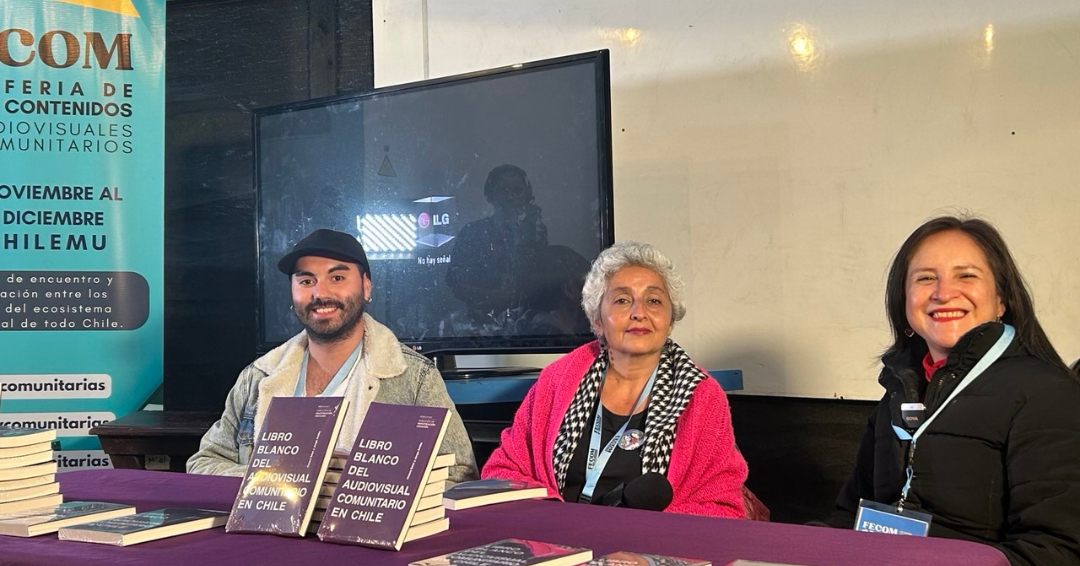From November 29th to December 1st, 2024, Convergent Regulation academics and researchers Chiara Sáez and Patricia Peña, along with research assistant Jorge Avilés, participated in the First Community Audiovisual Contents Fair (FECOM) held in Pichilemu, which was organized by the Pichilemu Audiovisualist Association with the support of the National Association of Community Channels of Chile.
This first initial version of FECOM brought together community media, local creators, students and academics of Universidad de Chile, among them the #RegulaciónConvergente team, who led workshops and mentoring sessions about the projects presented at the meeting. “We had a very important presence at a training level,” stated Chiara Sáez, lead researcher of Fondecyt Project 1230748.
Chiara Sáez and Jorge Avilés were in charge of a workshop in which they expounded on the Decalogue of Community Audiovisual Language, underlining the distinctive and structuring aspects of community communication beyond the employed technological media.

In turn, co-researcher Patricia Peña gave a talk on local narratives and their adaptation to digital environments, explaining the use of platforms and social media to foster the creation of contents and how it is possible to distribute the material created by community channels through these spaces to maximize their reach.
The academic at the Faculty of Communication and Image of Universidad de Chile emphasized how these initiatives allow expanding the perspective of local audiovisual creators to new media and ways of narrating their stories by not concentrating only on one platform and understanding how they can contribute to a wider distribution of the information and contents broadcasted by some of these channels.
The books “El Libro Blanco del Audiovisual Comunitario en Chile” (White Paper on Community Audiovisual in Chile) by Chiara Sáez and Jorge Avilés, and “Pluralismo Mediático y TV de Proximidad” (Media Pluralism and Proximity TV) by Sáez, Avilés and Fernando Fuente-Alba were also presented at the event. Both books are the product of years of research on local, regional and community channels and their practices, and their findings and conclusions are of great help to community media in developing a better representation of their communities.

Patricia Peña remarked that “it is very good news that this space was enabled, where a cluster of experiences, knowledge and views of people working on the local contexts of various regions was established”. She added that as an academic, participating in these activities allows connecting with the territories and their diverse communities, points of view and content management, as well as discovering the different creative potentials and needs of these projects.
“At the university, we can contribute not only from a theoretical perspective but also a practical one,” she concluded.

Chiara Sáez pointed out that these meetings help build experiences and “make them feel part of something bigger”. She added that “these spaces allow exploring the issues that emerge in various local contexts and enriching their training by delivering and making available tools, spaces for reflection and new knowledge. These experiences not only strengthen collaborative work but also reinforce local identity, and they contribute to the development of community collaboration in Chile”.
Watch a summary video of FECOM below:


